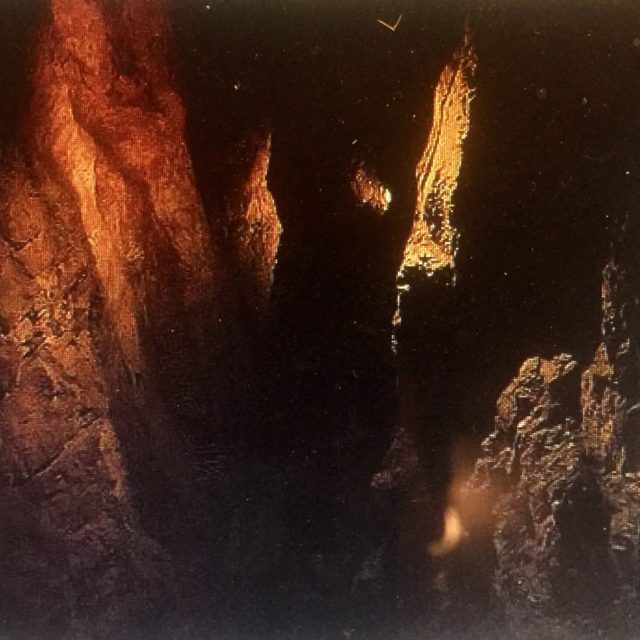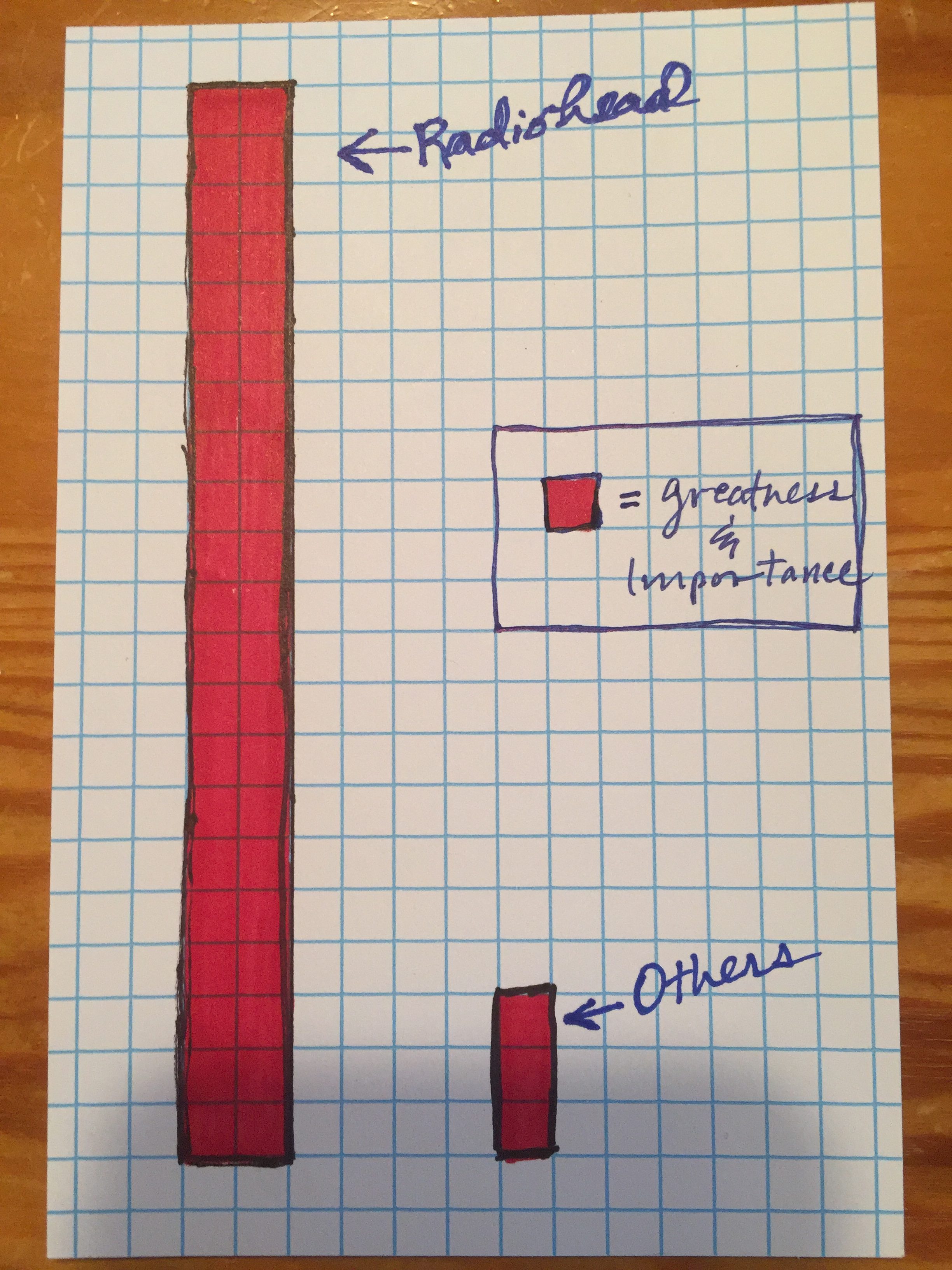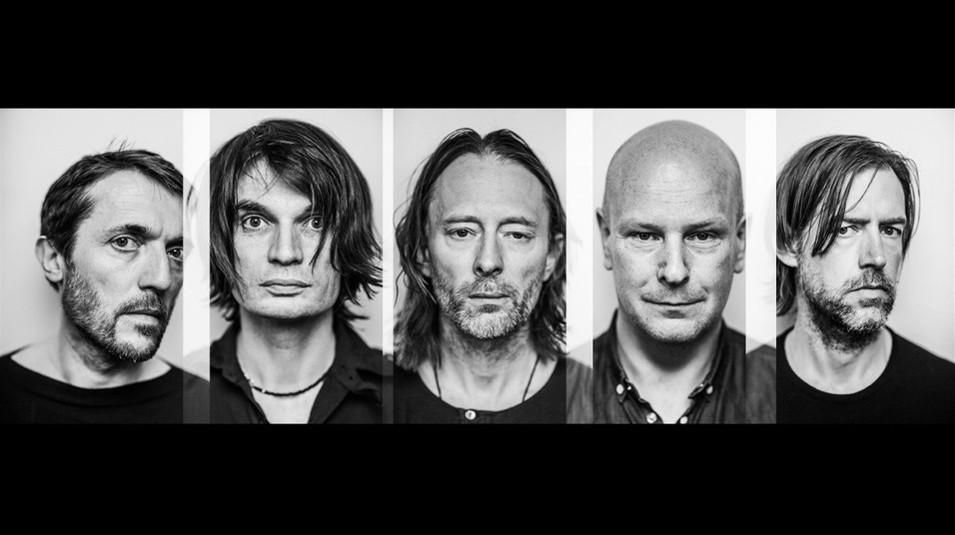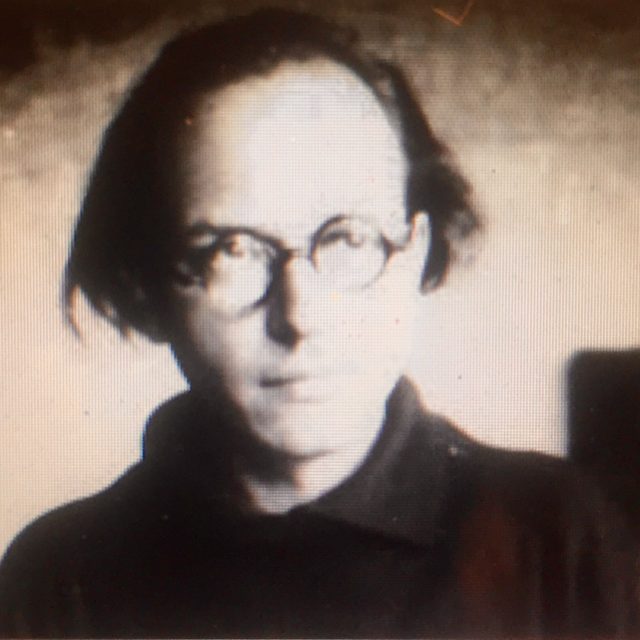Standing at the Edge
Some things we love almost too much, don’t we? We are struck stupidly silent by our own fascination. We are so close to some things we love that describing them, well – our ability to communicate effectively is nearly defied. It is as if one is standing at the edge of a beautifully mysterious, staggering chasm, and can’t come up with the word, “deep.”

I have been trying to express the greatness and importance of Radiohead, and I am just not getting quite there. Perhaps it is time for another technical graph to help explain this obsession:

Got that? Are you with me so far? Well, I will make this brief, but here goes (at least a bit more) to try and explain something that I may love too much.
The members of the group Radiohead have dipped into their bottomless pouch of tricks to compose and record the transcendent A Moon Shaped Pool. With it, they retain their status as the world’s greatest band. The new record is as rooted in musical traditions as it is innovative. Strong elements of British folk, classical, straight-up rock and roll, and even subtle tinges of jazz coalesce with Radiohead’s beautiful electronic and sweeping experimental/art music. In case you missed the May release of A Moon Shaped Pool, please check it out.

And if you checked it out only briefly, please give it another listen. Or ten. The band’s approach can be appreciated as literary and painterly as well as musical and cinematic, and spending time with their songs enhances the listener’s rewards. This is Art. (A best comparison to absorbing the meaning and pleasure of this music comes from the times when I was taught to read and tease out the mysteries of McCullers, Joyce, and Faulkner; to understand Sylvia Plath and T.S. Eliot; or when I finally cracked the code on the abstract works of some twentieth century painters like Rothko.)
Radiohead’s guitarist/multi-instrumentalist, Jonny Greenwood, has spent time as a resident composer for the Warsaw Symphony and scoring films for P.T. Anderson. These experiences seem to have delivered to him a renewable gift for conjuring visuals with his compositions – the sounds undulating at times and gently swirling like colors. Somehow the very spare can sound lush and full. And vice versa, big, complicated sections of songs are somehow distilled into simple messages of feeling.
Thom Yorke’s vocal delivery, (its variety; its subtle modulations pure evocations of longing, regret, hope; the headshaking beauty of its rising and falling; its sheer universal expression of anxiety; its terrible striving to be understood,) has found its full flower, and it has always been great.
Some things we love almost too much, don’t we? Minor chords. Whole-tone scales. Modes of limited transposition. Things we cannot explain, but are willing to stab at. Like this: As separate songs, and taken all in all, A Moon Shaped Pool taps a feeling of endings, or expectations of endings. Or maybe it taps a feeling of resolutions – is that more accurate? I guess you just need to listen for yourself. These are songs full of wonder. Listening can be at times like teetering at the edge of an enormous chasm – wondering if you need to fall in (or jump) to come up with the word, “deep.”
Three songs by Radiohead from A Moon Shaped Pool (2016 XL).
Present Tense (live version).
Desert Island Disk (live version).
Radiohead has received and acknowledged influence from plenty of sources. One rich source of influence was the twentieth century French master, Olivier Messiaen, (who was synesthetic – he perceived music as color – and he was also a bird lover who, fascinated by birdsong, transposed birdsongs into composed music.)

Quartet for the End of Time (Fifth Movement) by Olivier Messiaen – composed 1940-41.